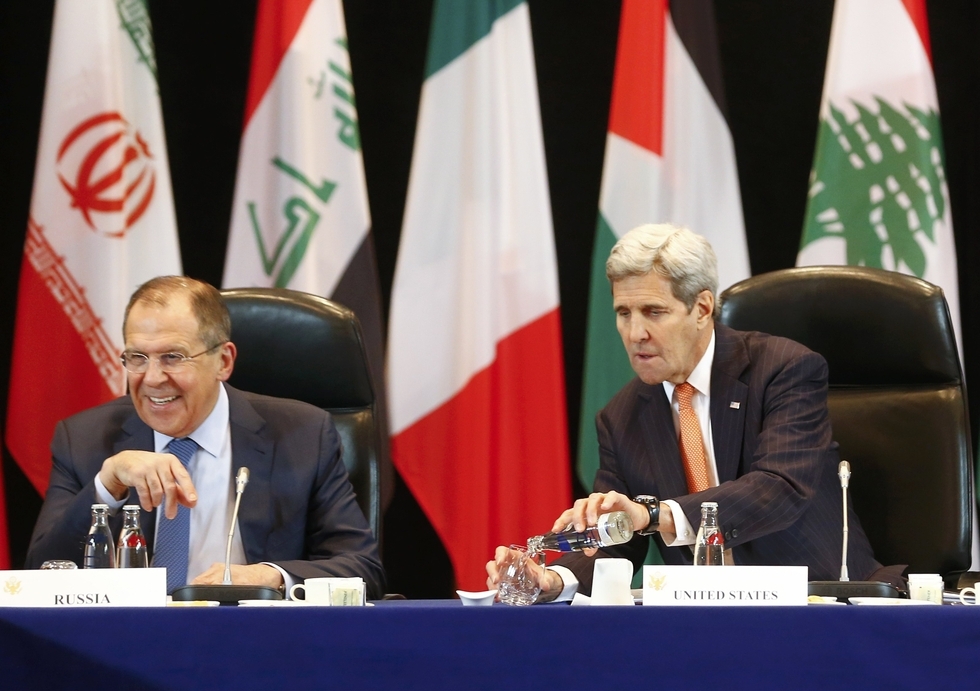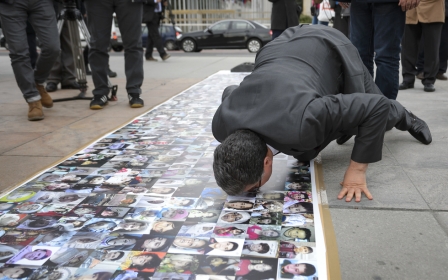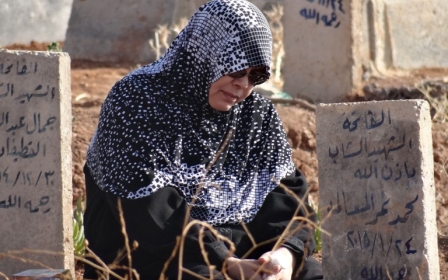There will be no 'cessation of hostilities' in Syria

Since last week's talks in Munich on Syria, a new buzzword - "cessation of hostilities" - is in circulation instead of the usual "ceasefire," in an attempt to lower expectations. We are told the difference is that a ceasefire requires monitoring and verification, even though previous ceasefire deals in Syria lacked monitoring and verification, and were still called ceasefires.
Let us not be fooled into thinking there is any tangible difference between the two terms - this new lexicon is mere sophistry by the participants in Munich. Neither term means anything without monitoring and verification, because any party can break the agreement without evidence that it did so, while blaming its opponents in the process. As such, previous ceasefires collapsed almost immediately.
This one could do so before it even starts later this week. As with last year's Vienna talks, the deal in Munich was struck without the participation of any Syrian parties. The assumption may be that their foreign backers have the capability and the will to reign them in.
However, given the increasing complexity and fractiousness of the conflict, the number of participants, the deepening involvement of foreign powers, and competing agendas - even among those who are ostensibly on the same side - this may be wishful thinking on both counts.
Furthermore, the number of parties exempt from what is supposed to be a "nationwide cessation of hostilities" makes a mockery of the very idea. The US-led coalition is free to continue its operations. Moscow too is free to carry on its bombing campaign - which despite its rhetoric is mainly targeting Syrian rebels and civilians rather than the Islamic State (IS) - and has said it intends to do so.
Opposition groups have said they cannot abide by a deal that does not halt Russian air strikes. This is a reasonable condition, yet according to the Munich agreement, non-compliance could lead to "the exclusion of parties from arrangements for the cessation of hostilities and the protection it affords them". In other words, if opposition groups do not accept a dodgy deal in which they had no say, they may be deemed legitimate targets.
The ceasefire excludes two of the most formidable ground forces: IS, which controls anywhere between a third and half of the country, and al-Qaeda's Syrian wing al-Nusra Front, which operates nationwide. Other UN-designated terrorist groups are also excluded, but despite months of wrangling, there is no agreed-upon list of such groups. This gives carte blanche to parties to continue fighting under their own definitions of terrorism.
In the case of the Syrian regime and its allies, this means any opponents of President Bashar al-Assad, who showed his contempt for the Munich talks by vowing while they were taking place that he would retake the whole country.
Given the regime's trademark belligerence throughout the "peace process," this is a strong indication that Moscow's underwriting of the process is intended to bolster Assad rather than bring about an equitable solution to the conflict.
Since he admitted in July last year that his army was suffering from manpower shortages, he will have to rely on allied militia, Iranian forces and Russian airpower to retake all of Syria. Assad is unlikely to have made that pledge without commitments of, or at least confidence in, such support.
"What we have here are words on paper," US Secretary of State John Kerry said of the Munich deal that he helped bring about. "What we need to see in the next few days are actions on the ground."
Besides a war of words between various parties on both sides since Munich - culminating in Russia's prime minister warning of a "new cold war" - the actions on the ground since the talks do not bode well at all.
Moscow continues to provide air cover for the regime and allied ground forces to advance on various fronts, including the strategic province and city of Aleppo. This is a clear attempt to seize as much territory as possible before the start of a "cessation of hostilities" that will then potentially enable them to consolidate their gains. This has prompted the rebels' foreign backers to reportedly increase supplies of ground-to-ground missiles.
The Syrian regime has said it intends to advance into IS-held Raqqa province. Meanwhile, Ankara has fired back at reported shelling from regime positions in Aleppo, and has been bombing Kurdish fighters advancing toward the Turkish border who have rejected Ankara's demands that they withdraw from seized territories. American and European pleas for Turkey to stop its shelling have so far gone unheeded.
In addition, Saudi Arabia has sent fighter jets to Turkey for the military campaign against IS in Syria, and Riyadh and Ankara have floated the possibility of sending in ground troops to fight the jihadist group. In that case, clashes between Turkish troops and Kurdish forces would not be unlikely given the escalating tensions between them.
An example has long been set by foreign parties to the Syrian conflict that as long as they do not directly clash with each other, they can operate with relative freedom in the country. These are the very same parties involved in a "peace process" that is increasingly detached from reality and justice, and whose purpose seems to be to manage the conflict rather than end it.
Does this look like the groundwork is being laid for a "nationwide cessation of hostilities"?
- Sharif Nashashibi is an award-winning journalist and analyst on Arab affairs. He is a regular contributor to Al Arabiya News, Al Jazeera English, The National, and The Middle East magazine. In 2008, he received an award from the International Media Council "for both facilitating and producing consistently balanced reporting" on the Middle East.
The views expressed in this article belong to the author and do not necessarily reflect the editorial policy of Middle East Eye.
Photo: US Secretary of State John Kerry (R) and Russia's Foreign Minister Sergei Lavrov lead the International Support Group for Syria (ISSG) meeting on 11 February, 2016 in Munich, southern Germany (AFP).
New MEE newsletter: Jerusalem Dispatch
Sign up to get the latest insights and analysis on Israel-Palestine, alongside Turkey Unpacked and other MEE newsletters
Middle East Eye delivers independent and unrivalled coverage and analysis of the Middle East, North Africa and beyond. To learn more about republishing this content and the associated fees, please fill out this form. More about MEE can be found here.





